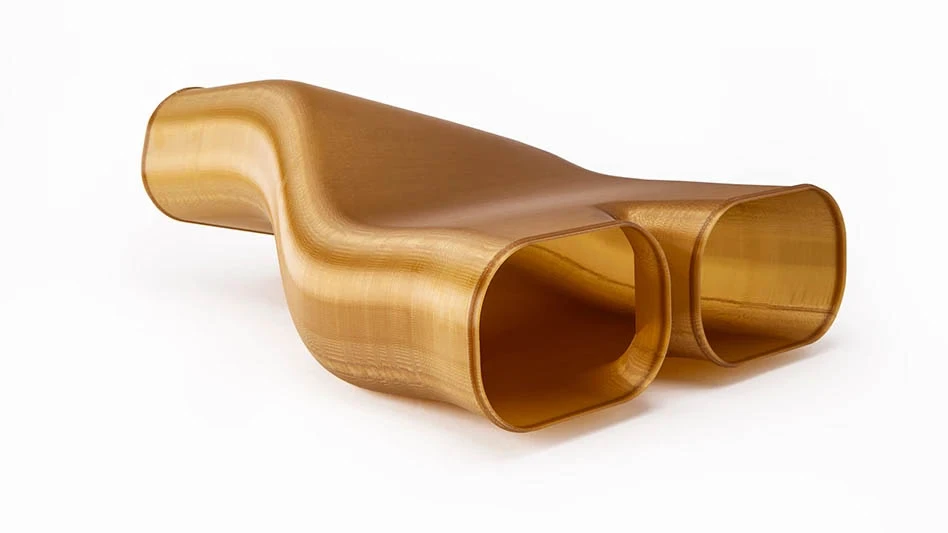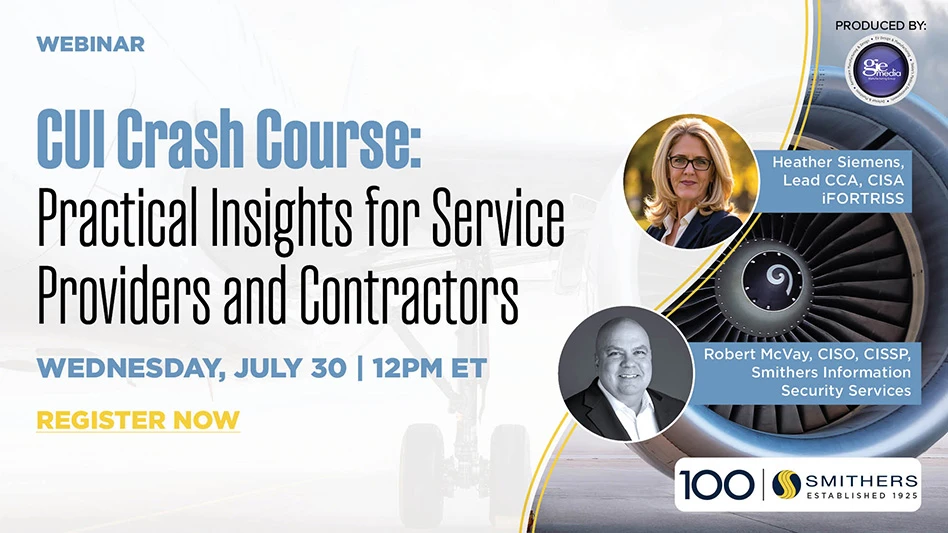
If all you're getting is a machine, you're not getting enough
For manufacturers today, strategic decisions are increasingly driven by the bottom line. Do we want to take this project in-house? Perhaps outsource all or part of the project? But more important than ever is choosing with whom to invest capital and what you get in return.
Tony Hadley is the owner of Dearborn Tool, an 18,000 sq ft, 22-employee contract shop, who says he's been taking on a wide variety of contracts his entire career. So, Hadley thinks through the above considerations on a regular basis.
The most recent program
Most recently, Hadley took on a program to produce a high-volume, close tolerance precision automotive component. "My first inclination was to outsource the entire turnkey instead of doing it in-house. You know, pay the price later rather than pay the price up front," he says.
Hadley notes that when the project was launched, he had all the vendors sitting around the same table; some he'd known for years, others were new to him. But by the end of the day, he knew he had the right group of people. "They all knew what they were doing, and they were all going to pull in the right resources and talent. And that's why I chose to do this project this way. It's why I went with a new Blohm. I knew that I needed a lot more than just a machine. I figured, do this right, or don't do it all," Hadley says.
Automation down the road
Ultimately, the machine is going to be tended by a robot for loading and unloading, Hadley explains. "The machine produces 100 pieces an hour, and there's just no way I could have a guy standing there. If I've got an operator running this machine, I can get about 18 hours a day worth of utilization. By replacing the man with a robot, my utilization goes up to 22 hours per day. Plus, my costs become much more predictable. My operators become mostly maintenance technicians, who I can spread over more machines, effectively lowering my labor costs."
Working with a seven-day-a-week customer
"The only time I visited United Grinding was during the runoff," Hadley says. "But they were here every time I needed them. I'm a seven-day person, and if I want to talk to someone about a program, and it's Sunday, that's when I want to talk to them. Not Monday or Tuesday. If you can't deal with me on a seven-day basis, then you can't deal with me. United Grinding was a company that was more than willing to work like that, and that's what made this program successful."
The customer held the contract up for about a year, and when they finally let it go, Hadley was looking at four months to bring the program on line. Because he had access to supplier resources seven days a week, he was able to hit the deadline. "I have to credit United Grinding for their upfront flexibility and resource availability. The Blohm was ready for delivery in December, and at our request they sat on the machine for more than a month to accommodate us and our schedule," he says.

United Grinding's Michael Gaerner is a big reason Pratt enjoys 95% uptime on their Blohm grinders. He's on-site regularly to keep things humming.
He says his main United Grinding contact has been a regional sales manager named Phil Wiss who was at Dearborn most of the time – certainly whenever Hadley needed him. Backing him up at United Grinding was Baltz Kloeti, project manager. The two were continuously in contact, making sure every detail of the turnkey went smoothly.
"There was some pre-prototyping that United Grinding dealt with and other things that no one knows about because they don't come up until you run the job. They took it upon themselves to address these issues. They did everything-the tooling, the fixturing, the programming. We didn't have the talent to do that. We simply walked in their door, and they began the runoff," Hadley says.
Finding the resources
Hadley admits that he's going to be relying on United Grinding's support for quite some time to come. "Frankly, I don't know all this stuff-the troubleshooting of the machine and so on, and you can't hire someone who does," he says. "Even if you could find the right guy with the right experience and background, he's got to be involved in that kind of work all the time and I can't keep someone like that busy with a single machine. You have to have a vendor that can stand up and commit to the whole package. Today, people like me can't afford to just buy a machine. You've got to work with a company that provides a whole life cycle team."
Hadley concludes: "United Grinding has got some very smart guys, and if you're going to be in the manufacturing business in this country, you've got to have intellectual capital at certain levels. One of those levels is being able to provide solutions for your customers. You're going to have to be able to offer products and services people can't get elsewhere – and the emphasis here is on service and support."
Grinding on a grand scale
Doug Ricciardelli, manufacturing engineer at Pratt & Whitney, says that from the very beginning the installation of 38 Blohm Profimat MT 607s, 21 for aircraft blade production and 17 for vane production, was clearly a team effort between Pratt, United Grinding and Blohm in Germany.
"The whole process was pretty much co-developed by all parties," says Ricciardelli. "What we were doing was something new in the industry, which was going to vitrified bonded CBN wheels. We knew our tooling approach, and Blohm built a small footprint machine actually developed based on feedback they got from us. And through the installation until today, we've just kept the relationship going forward. We continue to have on-site service. Michael Gaerner, technical support engineer, was here just about 100% of the time for the first five years. Now he's here about 50% of the time. When you have a factory-trained, knowledgeable United Grinding employee servicing your equipment, there are just all kinds of intangible advantages. It's helped us immensely with machine uptime."
Ricciardelli reports that cell uptime is running at 80%, but with five machines per cell, the uptime per machine comes out to be roughly 95%.
Ricciardelli also notes that having a person on site works to United Grinding and Blohm's advantage as well. "They have someone here who actually sees how the equipment is used on a daily basis – not just someone who drops by from time to time. Both companies are getting realtime market feedback."
This is not to say, however, that there hasn't been the occasional glitch. Early on, Ricciardelli says, there were some component failures on hydraulic power packs.
With Mike on site, he got it immediately diagnosed and fixed and then fed the information back to Germany where Blohm had the OEM of the power pack make the necessary changes, correct the coupling, and then had them shipped and installed on a replacement basis. When things go wrong, in the case of United Grinding the customer isn't waiting a couple of days or a week for someone to show up to fix the situation.
A good example of this, Ricciardelli says, is that he had to go to Germany to buy additional machines. "This was a year or so after the original purchase," he says. "Mike and I and a couple of other guys went over to run the machines off, and what was really interesting was to see that some of the improvements we recommended early on had already been incorporated into their latest machine designs. Now, that's feedback coming full circle."

Production Partners: Pratt's Doug Ricciardelli and United Grinding's Michael Gaerner have worked closely on their project for over five years.
Not all vendors are created equal
Ricciardelli says he's been a grinding specialist for more than 20 years, and from his perspective there are about six choices when it comes to aerospace grinding equipment. But United Grinding is at the very top of the list. Not just because of the quality of the machine, but because they're so knowledgeable and they support their customers so well.
"We have similar relationships with other vendors," Ricciardelli says. "But the results are not the same as with United Grinding. We're constantly squabbling with some of these companies. They want to stand at arm's length in the relationship. They're always trying to pull their guy out, sending him off to other places, telling him he can't work weekends without charging extra. With Mike and United Grinding, it's entirely different. It's why when we need grinders in the future, they're the ones we'll call."

Explore the January 2007 Issue
Check out more from this issue and find your next story to read.
Latest from Aerospace Manufacturing and Design
- NASA selects instruments for Artemis lunar terrain vehicle
- Twin-cutter boring head
- Bell awarded funding for X-plane build phase of SPRINT program
- Shaft coupling clamps
- #46 Lunch + Learn Podcast with SMW Autoblok
- Gleason Corp. acquires the Intra Group of Companies
- Thread milling cutter reduces cutting pressure, vibration
- Malaysia Aviation Group orders 20 more Airbus A330neo widebodies





